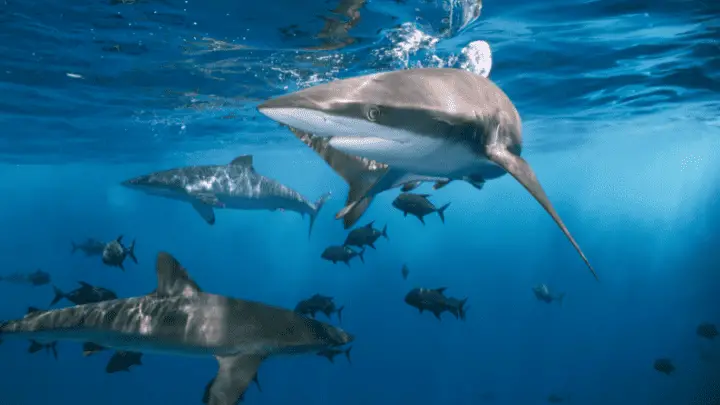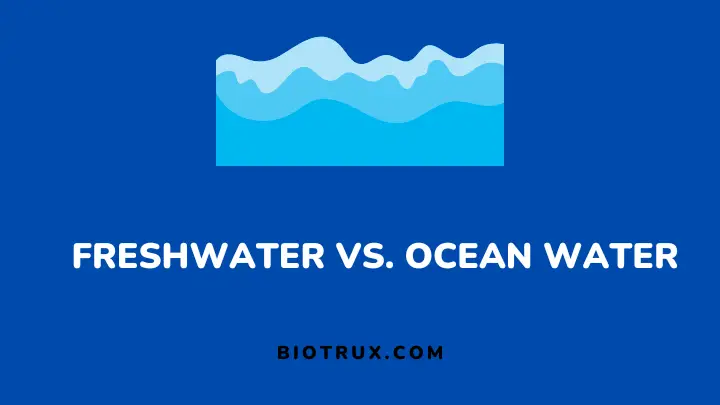Water is one of the most important resources on Earth, covering over 70% of the planet’s surface. But not all water is the same – freshwater and ocean water are the two main types.
While both types are essential for different reasons, they have distinct differences that make them unique and important. So, what exactly differentiates fresh water from ocean water? In this article, you’ll take a closer look at the characteristics of each type of water.
You will also explore the characteristics, challenges, and some interesting facts you may have yet to learn about freshwater and ocean water.
Understanding Freshwater

What is freshwater?
Freshwater refers to the water found in rivers, lakes, streams, ponds, and other non-saline sources. It contains low dissolved salts and minerals, making it suitable for drinking, irrigation, and supporting various aquatic life forms. Freshwater is crucial in sustaining ecosystems, meeting human needs, and facilitating economic activities.
Composition of freshwater
Freshwater is primarily composed of H2O molecules along with dissolved gases, minerals, organic matter, and suspended particles. The exact composition can vary based on location, climate, and human activities. Some common minerals found in freshwater include calcium, magnesium, potassium, and bicarbonate.
Sources of freshwater
Freshwater comes from several sources, including precipitation (rainfall and snowfall), surface runoff, groundwater discharge, and melting ice. The water cycle ensures the continuous circulation and renewal of freshwater on Earth.
Importance of freshwater
Freshwater is essential for all forms of life on Earth. It is a vital resource for drinking, cooking, sanitation, agriculture, and industrial purposes.
Furthermore, freshwater ecosystems support diverse flora and fauna, providing habitats for numerous species. Additionally, freshwater acts as a natural buffer against droughts and helps maintain the overall balance of the planet’s water cycle.
Challenges and conservation of freshwater
Freshwater resources face several challenges, including pollution, overconsumption, habitat destruction, and the effects of climate change. Pollution from industrial and agricultural activities and improper waste management can contaminate freshwater sources and render them unsuitable.
Overconsumption of freshwater for agriculture and urban development can lead to water scarcity and ecological imbalance. To conserve fresh water, various measures need to be taken.
These include sustainable water management practices, reducing pollution through stricter regulations, promoting water conservation awareness among individuals and communities, and implementing efficient irrigation techniques in agriculture.
Understanding Ocean Water

What is Ocean Water?
Ocean water, known as seawater, is saltwater in Earth’s oceans. The oceans contain about 97 percent of all the water on Earth. Ocean water is characterized by its high salinity caused by dissolved salts and minerals.
Salinity of ocean water
Salinity refers to the salt content in water and is typically measured in parts per thousand (ppt). Ocean water has an average salinity of about 35 ppt, meaning that for every 1,000 grams of seawater, approximately 35 grams are dissolved salts.
The main dissolved salts in ocean water include sodium chloride (table salt), magnesium chloride, and calcium sulfate. The salinity of ocean water can vary depending on factors such as location, depth, and proximity to freshwater sources.
Coastal areas may have lower salinity due to the influence of freshwater inflows from rivers and precipitation, while open ocean regions often have higher salinity levels.
Importance of ocean water
Ocean water is of immense importance to life on Earth. It is a habitat for countless marine organisms and supports complex ecosystems such as coral reefs, kelp forests, and deep-sea communities.
Additionally, the oceans play a significant role in regulating climate, absorbing carbon dioxide, and producing oxygen through photosynthesis by marine plants, including phytoplankton.
Characteristics of ocean water
Ocean water exhibits several unique characteristics due to its high salinity and composition. It is denser than freshwater, allowing objects to float more easily. Ocean water also has a higher heat capacity, absorbing and retaining more heat than freshwater. This plays a crucial role in regulating global climate patterns and redistributing heat around the planet.
Ocean currents and circulation
Ocean currents significantly redistribute heat, influencing climate patterns and marine ecosystems. These currents are driven by wind, temperature differences, and the Earth’s rotation. The movement of ocean water helps transport nutrients, regulate temperature, and facilitate the mixing of different water masses.
Major Differences Between Freshwater and Ocean Water
1. Salinity levels
The most apparent distinction between freshwater and ocean water is the difference in salinity. Freshwater typically has a salinity of less than 0.5 parts per thousand (ppt), while ocean water has an average salinity of about 35 ppt.
2. Density variation
Due to dissolved salts, ocean water is denser than freshwater. The higher density of seawater allows for greater buoyancy, making it easier for organisms to float or swim in ocean environments.
3. Freezing point
The freezing point of freshwater is 0 degrees Celsius (32 degrees Fahrenheit). However, ocean water’s freezing point is slightly lower due to its salt content. On average, ocean water freezes at around -2 degrees Celsius (28.4 degrees Fahrenheit).
4. Taste and potability
Freshwater is typically described as tasteless or having a subtle, refreshing taste. On the other hand, ocean water’s high salt content gives it a distinct, noticeably salty taste, making it unsuitable for direct human consumption.
5. Color and transparency
Freshwater bodies such as lakes and rivers often appear clear or have a bluish tint, depending on the presence of minerals and suspended particles. In contrast, ocean water appears bluish due to its molecules and dissolved substances’ selective absorption and scattering of sunlight.
6. Ecological adaptations
Organisms living in freshwater or ocean water have distinct adaptations to their respective environments. Freshwater species have physiological adaptations to handle lower salinity levels, while marine organisms are adapted to survive in high salinity and withstand ocean currents.
FAQs
Can you drink ocean water?
No, drinking ocean water is not recommended. The high salt content in ocean water can lead to dehydration, increasing the body’s water needs instead of quenching thirst.
Why is freshwater more suitable for agricultural irrigation?
Freshwater’s lower salt content makes it suitable for agricultural irrigation because excessive salt can harm many crops. When using saline water for irrigation, the salt accumulates in the soil, affecting its fertility and potentially inhibiting plant growth. Freshwater helps maintain soil quality and crop productivity.
Are there any freshwater organisms that can survive in saltwater?
Many freshwater organisms, including salmon, eels, and turtles, have physiological adaptations that enable them to migrate between freshwater and saltwater. These organisms have mechanisms to regulate their internal salt concentration, allowing them to survive in varying salinity conditions.
Is it possible to convert seawater into freshwater through desalination?
Yes, desalination is a process that removes salt and other impurities from seawater, making it suitable for various purposes, including drinking and irrigation. Desalination methods include reverse osmosis, distillation, and electrodialysis. H
Final Thoughts
Both freshwater and ocean water are important resources that sustain life on our planet. While both types of water have unique characteristics and benefits, they also have distinct challenges and limitations that must be addressed.
Freshwater is vital for human consumption, agriculture, and industrial purposes, but it is a finite resource often contaminated and mismanaged. On the other hand, ocean water is a crucial habitat for marine life but is also subject to pollution, overfishing, and the effects of climate change.
It is imperative to find sustainable and equitable solutions for managing freshwater and ocean water as we face increasing demands on water resources.
This requires a collective effort from individuals, communities, governments, and organizations to reduce waste and pollution, conserve water, and protect our ecosystems. By working together, we can ensure that future generations can access clean and healthy water on land and at sea.
You can also find out if pure water conducts electricity.
Thanks for reading.

